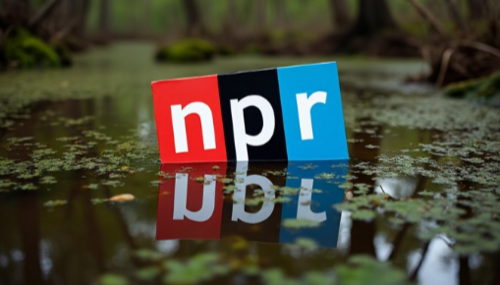Last week, you may recall, an EPA bureaucrat fouled the Animas River in Colorado by accidentally unleashing a torrent of polluted water from an abandoned mine. Fast forward to today and the Obama/McCarthy EPA's announcement of a new rule intended to tighten methane emissions from oil and natural gas exploration. MSNBC host the Rev. Al Sharpton brought on EPA administrator Gina McCarthy to discuss the new regulation.
As it was virtually impossible to ignore the Animas River contamination, Sharpton sought to quickly dispatch the issue before getting to friendlier territory, doing so with a rather benign question to McCarthy about whether she was satisfied with her own agency's handling of the cleanup effort. Here's the setup to the segment and Sharpton's first question (emphases mine):
AL SHARPTON: Now to the fight against pollution and the impact on communities around the country. Today the administration proposed the first-ever nationwide rules aimed at reducing methane emissions.
It's the latest move in the president's battle against climate change, and it could have a wide ranging impact from the environment to economic inequality. People living in poor urban areas are at higher risk for serious health problems in part because they're more likely to be exposed to harmful air and water. The president talked about it earlier this month.
President BARACK OBAMA, from August 3 videotape: We've got critics of this plan who are actually claiming that this will harm minority and low-income communities, even though climate change hurts those Americans the most. Who are the most vulnerable. Today an African-American child is more than twice as likely to be hospitalized from asthma. A Latino child is 40 percent more likely to die from asthma. So if you care about low-income minority communities, start protecting the air that they breathe and stop trying to rob them of their health care. [audience applause]
SHARPTON: Today's proposals build on the EPA's recent rule on carbon emissions. Already some on the right are pushing back. Seventeen states, led mainly by Republicans, are petitioning to block the carbon emissions rule. And more legal challenges from conservatives are expected. But today it's clear the president and the EPA aren't backing down.
Joining me now is EPA administrator Gina McCarthy. Thank you, first of all, for being here today.
GINA McCARTHY, EPA administrator: Rev. Al, thanks for inviting me. It's great to be here.
SHARPTON: You know, before we get to all of that, I want to ask you about the toxic oil spill, uh, the toxic spill into that Colorado river last week. The EPA's inspector general has started an investigation. The cleanup continues. Are you satisfied with the response and the cleanup efforts so far?
You'll notice Sharpton didn't explicitly note for his audience that it was an EPA official who is responsible for the toxic spill. Reference to the inspector general's investigation, of course, hints at the EPA's fault in causing the accident, but at no point did Sharpton explicitly point fingers at the agency. Of course, it's rather absurd to ask the head of the government agency which created a pollution problem whether she is satisfied with the same agency's efforts at cleaning up their own mess.
After McCarthy's answer, Sharpton lobbed softball after softball for McCarthy to lob out of the park in pushing the new methane emissions regulation. Here's the agenda of questions from Mr. Sharpton:
* Now, let me go back to our, the top of what I was talking about this segment. You heard the president talk about the impact that climate change has on poor communities. How do the new methane rules fit into this?
* Now, Dateline NBC did a report on how air quality disproportionately affects low-income communities. Watch this: [clip from Jan. 5, 2014 Dateline featuring Lester Holt reporting from Manhattan] Does more attention need to paid on the connection between pollution and inequality?
* You know, the new rule to reduce methane emissions has brought support, a recent poll by the American Lung Association shows 66 percent of voters support new methane emissions standards, including 53 percent of Republicans. Why do you think there's so much pushback from the Right, then, given these numbers?




